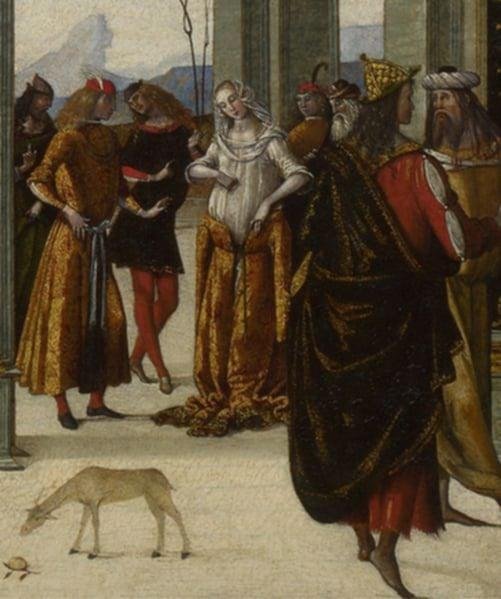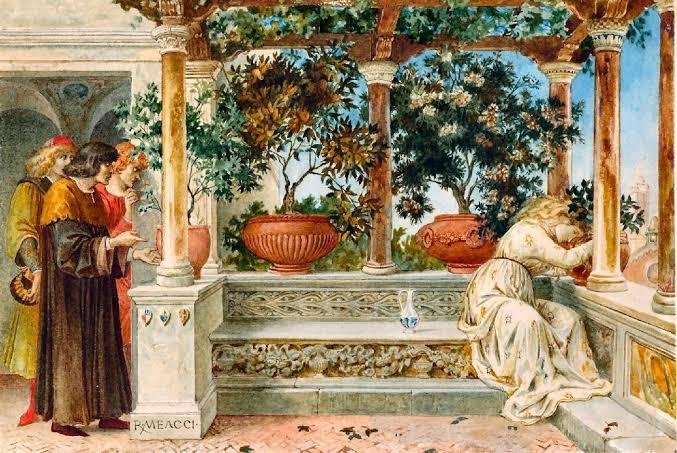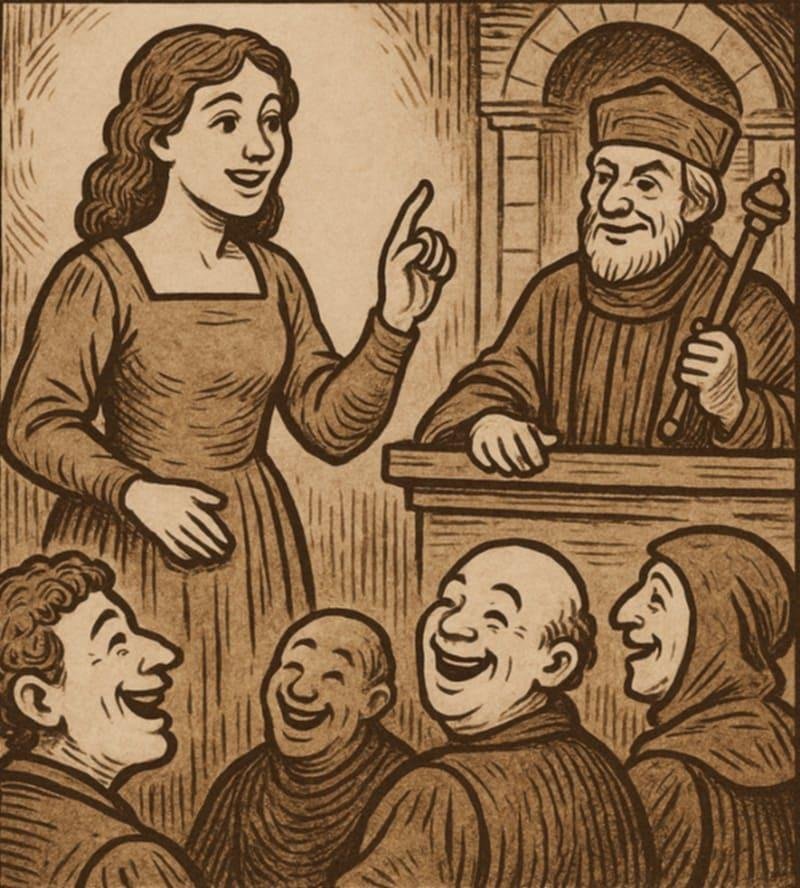Love's True Worth: Sacrifice and Redemption in "Federigo's Falcon."

INTRODUCTION
Giovanni Boccaccio’s The Decameron brims with tales of love, wit, and moral insight. Among its most poignant is Federigo’s Falcon (Day 5, Story 8), a narrative that explores the themes of generosity, sacrifice, and the redemptive power of true affection. In this review, I contend that Federigo’s ultimate act of selflessness not only redeems his past follies but also illustrates Boccaccio’s belief in love as the highest human virtue.
SUMMARY
Federigo was a young man from Florence who spent all his money trying to win over Monna Giovanna, a noblewoman who didn’t care about his expensive gifts. Broke and alone, he moved to a small farm where his only friend was his beloved falcon. When Monna Giovanna’s son fell very ill, his dying wish was to have Federigo’s falcon. Hearing this, she went to Federigo’s farm to ask for the bird. Not knowing why she really came, Federigo cooked the falcon to give her the best meal he could. After she ate, Monna Giovanna told him her son wanted the falcon—Federigo was heartbroken. Moved by how much he’d given up, she married him, and they both found happiness and security again.
ANALYSIS
Federigo’s decision to cook his beloved falcon—a symbol of his last remaining treasure—demonstrates the depth of his compassion. Boccaccio uses this act to distinguish superficial courtship (Federigo’s earlier squandered gifts) from true generosity. It isn’t the value of the gift but the heart behind it that matters; Federigo gives everything he has, and that honesty wins Monna Giovanna’s respect and love.
The tale’s irony is artfully constructed. The very bird Federigo prized most becomes the instrument of his redemption. This narrative reversal aligns with Boccaccio’s comic sensibilities: suffering and loss lead to an unexpected—and happy—resolution. The story rewards virtue in disguise, suggesting that misfortune can yield greater rewards when met with integrity.
Set against rigid Florentine social hierarchies, “Federigo’s Falcon” challenges the notion that nobility of birth alone earns respect. Federigo’s fall from wealth strips away the trappings of rank, exposing his intrinsic worth. Monna Giovanna’s willingness to marry “the poor farmer” underscores Boccaccio’s message that personal merit—and genuine character—outweigh inherited status.
Boccaccio’s understated prose heightens the emotional impact of key moments. The simple farmhouse meal, described without flourish, becomes profoundly moving when the reason for Giovanna’s visit is revealed. This subtlety exemplifies how restraint in storytelling can amplify pathos, engaging the reader’s empathy more deeply than ornate description might.
PERSONAL RESPONSE
Reading “Federigo’s Falcon” made me realize that real love isn’t about getting something in return. Federigo’s simple act of cooking his beloved falcon showed me more courage and kindness than any fancy gift ever could. It made me think about how giving up something important for someone else really shows who you are.
CONCLUSION
“Federigo’s Falcon” is still one of The Decameron’s most touching stories. It reminds us that love isn’t about how much you have, but about being ready to give your all—even when you have nothing left. Federigo’s selfless act shows that true generosity can bring people together, no matter their background.







